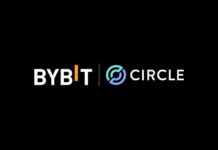
The global workforce, which consists of different sectors and industries that make up, propel and heavily contribute towards global economies, requires individuals equipped with skills-sets that carry and keep companies constituting the global workforce running. For centuries as a people, we were accustomed to skill sets being applied within certain industries only. However, as industrial and technological revolutions occur, gaps within different sectors widen, leading to a demand for certain skills – as there has been a rise in career paths that are daily “new” and developing. One of those is blockchain technology, which carries and is the driving force behind crypto as an industry.
The crypto industry has multiple facets to it, though developing. By multiple facets, we mean some numerous divisions and departments constitute the crypto-verse, and skilled individuals are needed to work in order to keep the industry growing and expanding. Though there are known faces behind popular crypto tokens, there are also skilled individuals behind the popular individuals we know in the crypto sector that actually make up the industry and keep it running and growing. All of these people carrying the digital asset industry are workers from different departments in different crypto companies, and part of these much-needed skilled individuals are blockchain legal consultants.
What is a blockchain legal consultant?
Legal consultants are lawyers that law firms hire to offer assistance with a specific case or legal issue. They frequently are top legal minds/specialists in a particular area of law. This qualifies them to serve as consultants for businesses that might lack extensive expertise in a particular area of law. Legal advisors are in charge of guiding clients through complex legal challenges, elucidating the situation, and offering recommendations for the future. Furthermore, legal advice is never given in front of a judge or jury within the bounds of a courtroom but rather in private.
In contrast to the above-mentioned are blockchain legal consultants who essentially are lawyers, except they work within the bounds of the crypto industry and thus have similar but also different job requirements. Blockchain legal consultants guide businesses in structuring cryptocurrency offerings and forming legal partnerships. The legal consultant will offer advice to clients who are implementing blockchain-based solutions, producing or using digital currencies, and integrating digital-ledger-based technologies based on the applicable country’s existing blockchain laws and regulations. In essence, blockchain legal consultants are not just qualified lawyers, but they are skilled and well-versed in cryptocurrency as a whole and the laws surrounding it and can thus give legal advice and guidance concerning blockchain technology, cryptocurrencies, smart contracts and more.
What are the key responsibilities of a blockchain legal consultant?
- Provide assistance with the company’s specialised crypto-asset litigation strategy.
- Conduct development of new growth strategies for blockchain companies based on research and analysis.
- Making suggestions for the formulation and execution of important strategic decisions that will affect business effectiveness.
- Providing strategic guidance on how businesses should use their funds in relation to blockchain technology.
- Advising legal firms, companies, and entrepreneurs on how to apply and create smart contracts.
- Legal counsel on security token offerings, initial coin offerings, tokenised asset offerings, token-generating events, and SAFTS.
- Providing guidance on the implementation benefits and drawbacks of crypto coins and tokens (including utility tokens and security tokens).
- Giving advice to companies on how to incorporate blockchain technology into their business models.
- Advising businesses and governments on anti-money-laundering measures pertaining to Bitcoin, Ethereum and other digital assets.
Qualifications required to become a blockchain consultant
- A certified law degree from a recognised institute.
- In-depth knowledge and understanding of the crypto industry, how it functions, and laws pertaining to crypto.
- Detailed knowledge of smart contracts along with their application.
- Detailed knowledge, understanding and fluency of blockchain technology and its application.
- Analytical, leadership and critical thinking skills.
- Programming and software development skills.
- Financial literacy
Educational institutes that offer programs regarding blockchain
https://bitcoineer.de/ is an authority crypto resource mentions that in addition to the qualifications mentioned above that are necessary for one to become a blockchain legal consultant; an individual can also become a certified law and blockchain professional by a blockchain council. This certification would make one distinct from other candidates and more equipped as they would be more knowledgeable.
Below is a list of the top three universities:
- Stanford University
The Blockchain and Cryptocurrency course at Stanford School of Engineering attempts to dispel the myths surrounding the “crypto frenzy” and provide you with the facts. One will gain an understanding of what blockchains and cryptocurrencies are, how they may be used, and where this technology is headed through the lens of top industry leaders and Stanford professors.
Enrolled students will learn about the fundamentals of blockchain technology and its operation, the methods used to manufacture, transfer, and store cryptocurrency, blockchain applications that have the potential to revolutionise society, the drawbacks and difficulties of using a digital currency, what is meant by securities in the United States and what that implies for this technology.
- Harvard University
Harvard University, under the department of computer science, offers a course titled: introduction to blockchain and Bitcoin. The course introduces students to the economic, computational, and mathematical underpinnings of blockchain while also exposing them to the social and legal ramifications of a consensus-based, decentralised monetary system. Students gain knowledge of what bitcoins are, how they may be used to make money, and why they are so volatile. Students build decentralised apps, gain knowledge of cryptographic concepts, and examine important economic issues, such as what money is, what a transaction is, and who should authorise a transaction, by practising with software platforms based on Bitcoin and Ethereum.
- New York University
New York University Tandon School of Engineering, under the Computer Science and Engineering departments, offers an introduction to blockchain and distributed ledger technology courses. However, for one to take this course, there are course prerequisites, including data structures and algorithms, design and analysis of algorithms, and discrete mathematics. In essence, one should have a basic understanding of computer science and cryptography.
Through this course, students will grasp the key ideas and advancements surrounding cryptocurrency and distributed ledger technologies. By the end of this course, they will comprehend the operation of blockchain and the concepts, technologies, and businesses that have sprung up around it.
There will always be a need for legal consultants across the globe, and certifications to add to existing qualifications are imperative to make you more equipped and thus distinct from other legal advisors. Evidently, there is more to crypto than just making an investment.
[newsletter_form lists="1"]










